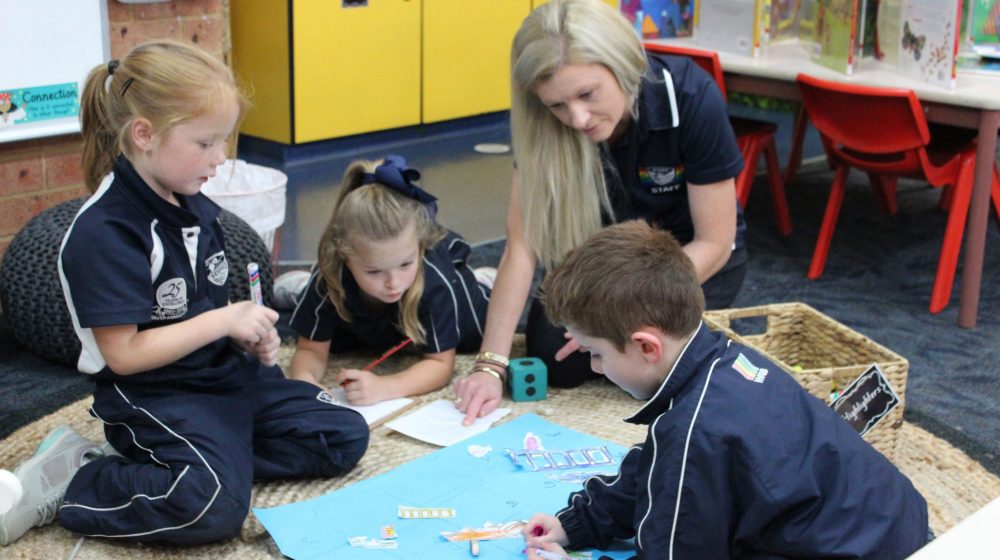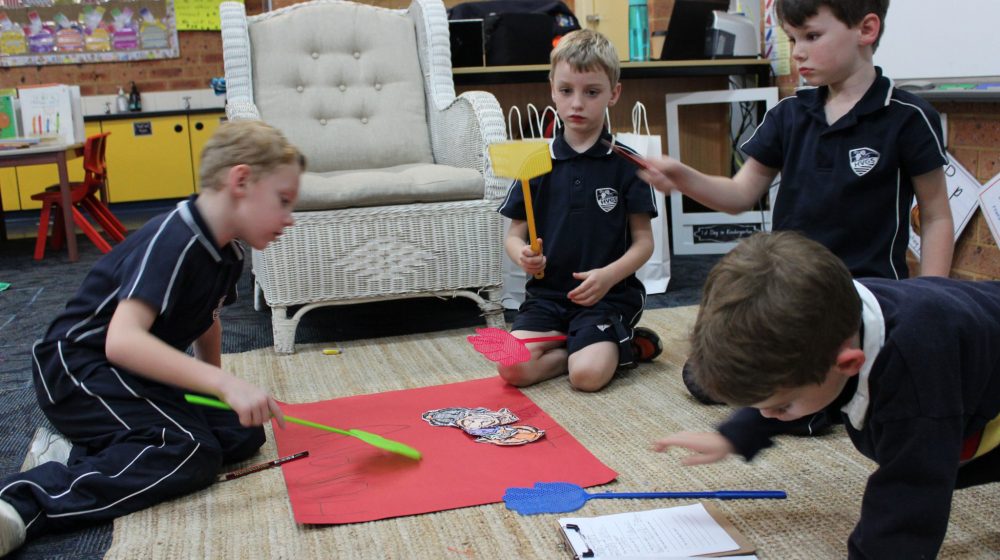Published on November 12, 2018
Remember the TV show Beyond 2000? That date, 2000, embodied a sense of future and wonder, of technological progress. Now, 20 years after the turn of the century, it seems quaint.
Thinking about the future world of our Kindergarten students, of course, faces the same fate. Our Junior School’s youngest charges will graduate from Year 12 in the years’ 2032 and beyond. Looking ahead, 2032 is unknowable, mysterious, exciting, and in many ways a little frightening.
But 2032 will come. Indeed, one day, students from the class of 2032 will be in their 40s, and one of them may read this article, found on a shelf somewhere (or a digital archive), and smile at how quaint it was for us to think of 2032 as some distant future.

We must ask ourselves, though, what is the education a 2032 graduate needs to receive?
For all the uncertainty we have around future, one thing is clear: a future-focused education must be one that prepares students for a global future – even in a regional school such as ours. The Hunter Valley community is a diverse one – industries thriving in our region include viticulture, marketing, hospitality, the arts, agriculture, health, construction, mining, the trades and education. In each of these categories, the impact of increased global connections can be mapped over recent decades, and there’s no identifiable reason for this impact to abate in the future. This will be more evident as the influence of Artificial Intelligence is increasingly felt across all sectors.
Each of our region’s industries brings an increasingly diverse population to our region – students from our school identify with more than 30 separate cultural backgrounds in their own immediate family.
Hunter Valley Grammar School takes its responsibility to our students incredibly seriously. To provide the absolute best outcomes for students, we must adopt a global world view, connected with and aware of the issues of the world, ready to contribute solutions globally, and ready to build bridges with those of other cultures. This is the type of education that equips this year’s Kindergartens for a global future.
HVGS is a proud World School, offering the International Baccalaureate’s Primary Years Program (PYP). Indeed, we are the only school in the region authorised to do so.

The PYP encompasses our curriculum and our teaching practice – it is the lens through which we view what we do and who we are educating our students to be. Core to the PYP is the concept of “International-Mindedness”, and core to that is the Learner Profile. Our goal is to graduate students who are open-minded, reflective, communicators, thinkers, knowledgeable, inquirers, courageous, caring, well-balanced, principled and endeavouring. People such as this, well-educated and passionate, are best placed to make global contributions, or even simply to make local ones cognizant of the global stage.
So what is a global education in Kindergarten?
One of our Kindergarten students might say they’re learning about “games”. How does this contribute to a global outlook? When is a unit about “games” more than a unit on games? What is going on beneath the surface?
Along with our Early Learning Centre (which is also PYP-authorised), Kindergarten is the beginning of the international-mindedness journey. Our Kindergarten teachers program learning experiences that cultivate the habits and the disposition of the Learner Profile. In inquiring into games, why and how they’re played, and how they’ve been played now, in the past and in other places, Kindergarten students are inquiring into our responsibilities towards each other, the influence of technology over time and the way our lives are different from and similar to the childhood lives of their parents and grandparents. They’re learning about the factors that influence how we play, and how our country, economic status, and connections impact on our play. They’re considering the importance of friendship and fair play across times and geographic and cultural divides.
And so a unit on “games” is really about so much more. It is an inquiry into character and who we are. It is, indeed, the start of a learning continuum in an education that fosters internationally minded students, ready to make a positive impact on a globalised world.
